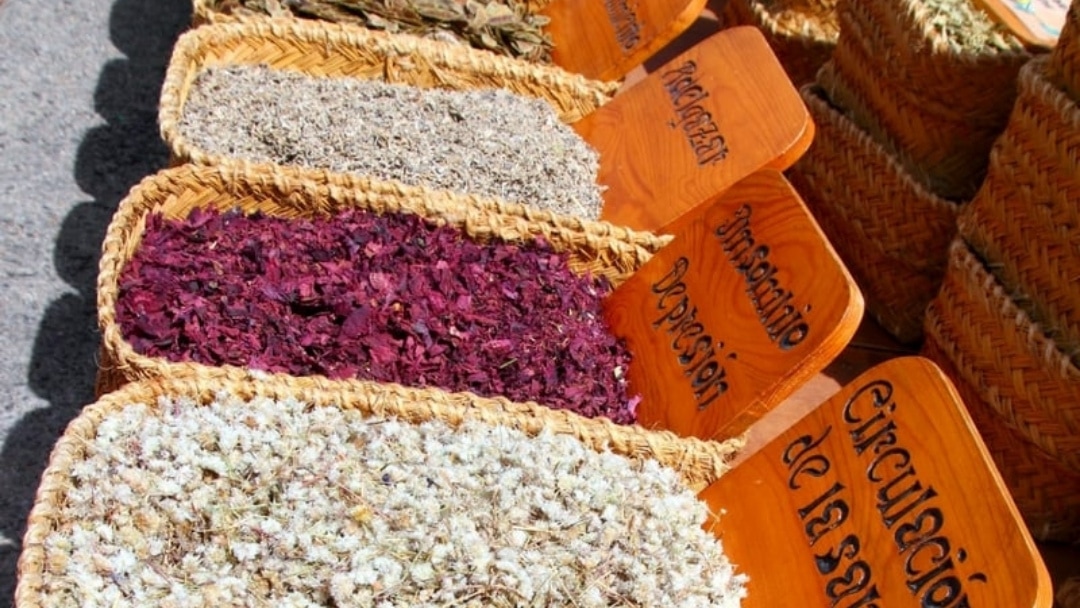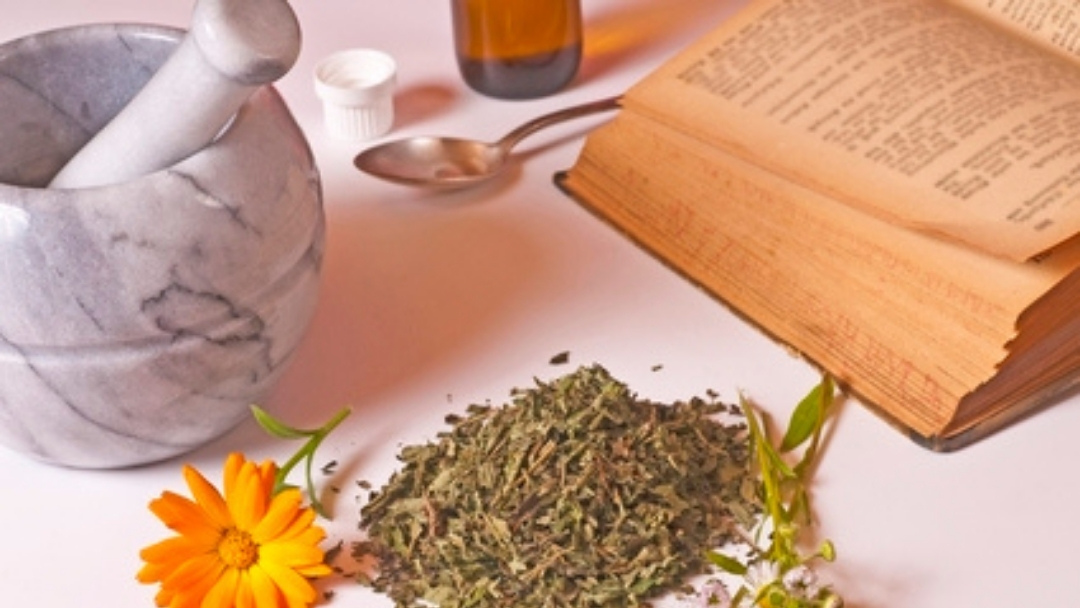In this blog post, Kelly Dorfman teaches how herbal medicine can help children with neurodevelopmental disorders, anxiety, constipation and gastrointestinal issues.
What Is Herbal Medicine?
Medicinal herbs are plants with healing properties used to prevent and treat illness. Herbal medicine is the most ancient form of medicine known to humans. Many of today’s pharmaceuticals were originally derived from herbs. Herbs are very different from drugs, however. While drugs suppress symptoms, herbs support and enhance the body’s own natural healing processes.
Which Systems Go Wrong in Children’s Chronic Health Disorders?
Three main systems become disordered by toxins, viruses and bacteria.
Gastrointestinal System
Yeast overgrowth and “autistic enterocolitis,” a novel form of inflammatory bowel disease that correlates to a chronic, sub-acute measles virus in the intestines, are common problems in children with neurodevelopmental disorders. The overuse of antibiotics causes yeasts to proliferate and colonize the gastrointestinal tract. Toxic chemicals from yeasts weaken and perforate the intestinal lining, leading to a leaky gut.
Immune System
In autoimmune disease, the body appears to be attacking itself, although it may be fighting pathogenic invaders such as undetected viruses and bacterial infections. These chronic sub-acute infections can severely impede normal immune function.
Nervous System
Demyelination of nerves affects learning, memory, communication, and social skills. Heavy metal toxicity can lead to sensory problems, repetitive motions, poor eye contact, loss of language, extremes of emotion, behavioral dysfunctions, sleep disturbances, and other issues.
Look to organic natural herbs once special diets and nutritional supplements are in place as part of a healing protocol.
Use of Herbal Medicine for Children
Cleansing the Gastrointestinal System
Garlic and usnea, both antifungals, are an effective first line of defense against yeast overgrowth. For repairing intestinal permeability look to demulcent herbs such as slippery elm and marshmallow root and to mucosal regeneratives such as licorice or chamomile. These herbs soothe, regenerate, and repair the ragged and inflamed tissue of the mucosal lining in the gastrointestinal tract.
Healing Enterocolitis
Healing enterocolitis involves targeting bowel pathogens and addressing constipation and/or diarrhea. To cleanse the area and eliminate pathogens, use anti-microbial herbs such as barberry, anti-inflammatory herbs such as meadowsweet, and astringent herbs such as agrimony.
Relieving Constipation
Laxative herbs such as burdock and buckthorn can be used for the relief of constipation. Tannin-containing herbs such as oak bark will stop diarrhea. To soothe the accompanying gas and cramping, try anti-spasmodic herbs such as fennel seed and cramp bark.
Targeting the Immune System
Use deep immune-activating tonic herbs such as astragalus and shiitake as alternatives to antibiotics when treating ear infections, colds, and fevers. Clear up sinus infections with berberine containing herbs such as goldenseal.
Thyme is a powerful antimicrobial and expectorant that makes an excellent tea for sore throats. Use mullein, an anti-inflammatory pain-reliever, to make herbal ear drops. Battle chronic sub-acute viruses with herbal anti-virals such as echinacea and licorice.
Supporting Detoxification
During the detoxification process, support detoxification organs with herbal medicine. The liver, kidneys, and lymphatic system must be able to excrete the toxins that chelating agents bind to and pull out.
Hepatic herbs such as milk thistle and yellow dock tone and strengthen the liver and increase the flow of bile. Diuretic/tonic herbs such as dandelion leaf and horsetail support the kidneys.
Lymphatic tonics such as cleavers keep the lymph from stagnating and encourage drainage.
Calming the Nervous System
An astonishing array of nervine herbs are available to address behavioral dysfunctions. Skullcap helps reduce self-stimulatory behaviors, gingko targets poor awareness and focus, and golden root is a vital part of a self-injury protocol.
Herbs ranging in strength from mild to quite strong in the form of relaxants such as lavender, sedatives such as lemon balm, and hypnotics such as valerian can quiet the body and bring on sleep.
Reach for Herbs, Not Drugs
Aromatherapy and flower essences are wonderful, supportive, complementary therapies that support all three systems of the triad. Use essential oils, with specific therapeutic actions and chemical properties, to assist in battling issues like yeast overgrowth and constipation, and in detoxification.
Flower essences are liquid extracts prepared from sun infusions of certain flowers. They heal and shift a variety of emotional states including anxiety, apathy, resistance, and extremes of emotion.
Explore herbal and other natural treatments from nature’s pharmacy. The best sources are small, herbalist-owned companies that grow organic plants, make their own medicines and products, and are environmentally conscious.
Medicines made by hand using the whole herb are far superior to the herbal pills typically found in health-food stores. Consult a trained herbal professional for guidance about dosages and type, as both are unique to each individual.
About Kelly Dorfman MS LND
Kelly Dorfman is one of the world’s foremost experts on using nutrition therapeutically to improve brain function, energy and mood. Kelly’s special talent for integrating information from many sources and finding practical solutions has made her a popular speaker and workshop leader. She lectures extensively and is a member of Platform (formerly the National Speakers Association) and has been featured on numerous television programs including CNN’s American Morning.
Kelly’s award winning book, Cure Your Child With Food: The Hidden Connection Between Nutrition and Childhood Ailments (formerly known as What’s Eating Your Child) was given rave reviews by Publishers Weekly and the Washington Post.

As a go-to expert on nutrition issues, Kelly is frequently interviewed and quoted in the media. She has been featured in articles in The Wall Street Journal, Parade, Bethesda magazine, Living Without magazine, and the Huffington Post.
Kelly holds a master’s degree in nutrition/biology and is a licensed nutrition dietitian. She is a co-founder of Developmental Delay Resources, which has merged with Epidemic Answers. You can find out more about Kelly and her practice at kellydorfman.com
Still Looking for Answers?
Visit the Epidemic Answers Practitioner Directory to find a practitioner near you.
Join us inside our online membership community for parents, Healing Together, where you’ll find even more healing resources, expert guidance, and a community to support you every step of your child’s healing journey.
Sources & References
Buhner, Stephen Harrod. Healing Lyme: Natural Healing of Lyme Borreliosis and the Coinfections Chlamydia and Spotted Fever Rickettsiosis. Raven Press, 2015.
Buhner, Stephen Harrod. Herbal Antibiotics, 2nd Edition: Natural Alternatives for Treating Drug-resistant Bacteria. Storey Publishing, 2012.
Buhner, Stephen Harrod. Herbal Antivirals: Natural Remedies for Emerging & Resistant Viral Infections. Storey Publishing, 2013.
Candee, Andrea, et al. Gentle Healing for Baby and Child: A Parent’s Guide to Child-Friendly Herbs and Other Natural Remedies for Common Ailments and Injuries. Gallery Books, 2003.
Gladstar, Rosemary. Herbs for Children’s Health: How to Make and Use Gentle Herbal Remedies for Soothing Common Ailments. Storey Publishing, 2015.
Gladstar, Rosemary. Herbs for Stress & Anxiety: How to Make and Use Herbal Remedies to Strengthen the Nervous System. Storey Publishing, 2014.
Hoffmann, David. The Complete Illustrated Holistic Herbal: A Safe and Practical Guide to Making and Using Herbal Remedies. Element Books Ltd., 1996.
McIntyre, Anne. The Herbal for Mother and Child. Thorsons, 2003.




